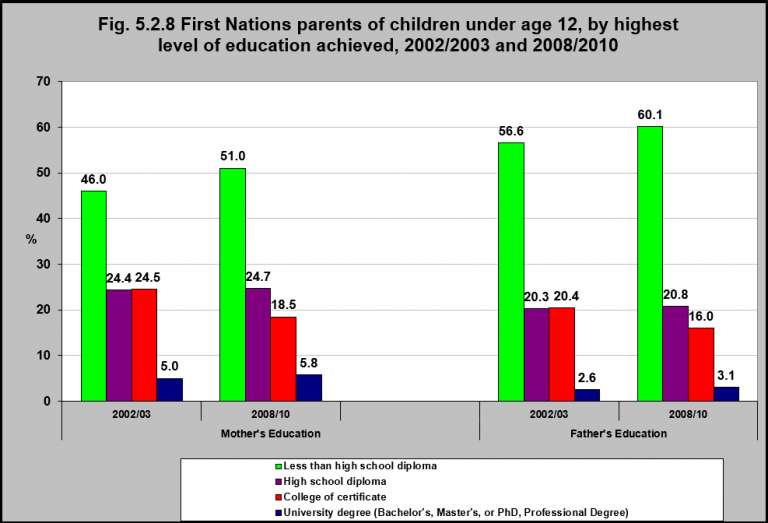First Nations parents of children under age 12, by highest level of education achieved, 2002/2003 and 2008/2010

Source: CICH graphic created using data adapted from the First Nations Regional Longitudinal Health Survey (RHS) 2008/10, National report on adults, youth and children living in First Nations Communities. https://fnigc.ca/sites/default/files/docs/first_nations_regional_health_survey_rhs_2008-10_-_national_report.pdf -accessed August 15, 2017.
In 2008/2010, 51% of First Nations mothers of children under 12 years of age had less than a high school diploma, compared with 46% in 2002/03.
That was the case for 57% and 60% of fathers respectively.
In 2008/2010, one quarter of mothers and about 20% of fathers had a high school diploma – unchanged since 2002/03.
In 2008/2010, one quarter of mothers and about 20% of fathers had a college or university education.
Implications
Children’s health outcomes are influenced by parental educational attainment, with low levels of education being associated with poorer health outcomes.1 Education produces benefits such as increased earnings, greater social supports, and the development of skills and traits associated with resilience and success in later life.1 It thus affects the ability to find gainful employment and acquire resources important to health such as food, stable housing, transportation, and health care.
1Zimmerman, E.B., Woolf, S.H., & Haley, A. (2015). Understanding the relationship between education and health: Review of the evidence and an examination of community perspectives. Population health: Behavioral and social science insights. Rockville, MD: Agency for Healthcare Research and Quality. https://www.ahrq.gov/professionals/education/curriculum-tools/population-health/zimmerman.html -accessed September 12, 2017.
